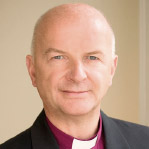
I heard recently about a genre of literature about which I had never heard before: non-factual history. A contradiction in terms, surely.
Well apparently non-factual history is a speculative kind of writing that asks the question, What if? For instance, what if Franz Ferdinand (The Archduke of Austria-Este, not the rock band!) had not been assassinated and World War I had not happened? What would the world look like? What would be different?
Easter sees a piece of history that invites similar speculation the resurrection of Jesus of Nazareth. People who are dead dont come back to life. They are dead after all. For centuries, people have been curious about this claim. How could this happen?
The Apostle Paul, writing in the Bible, has a bit of a what if moment when speculating around the event of Easter, the Resurrection.
If Christ has not been raised, he writes, our preaching is without hope and so is your faith. If Christ has not been raised, your faith is futile; you are still in your sins. If only for this life we have hope in Christ, we are to be pitied more than all people.
Paul is basically rehearsing the what if question. What he is contending is that if the whole of his preaching is based on a lie, then there are consequences. Hopelessness, futility and a world made up of people who have little hope of change and who are trapped by their innate inclination to selfishness (their sin).
When I took part in a recent local radio phone-in, a man predicated his comments by saying, Well, Mike you sound like a nice enough bloke so how come you believe in those fairy tales?
I meet this kind of thing a lot in my work. The question amuses me rather than offends me because it rather misses the point.
The point is this: I am what I am because of the Resurrection. Its not just the case that I am a chap who happens to believe some weird stuff but manages, despite all the odds, to stay nice. If Jesus was still lying in a grave somewhere in the Ancient Middle East, I would not know whether to believe what Jesus claimed for himself or know whether he could have any claim on me.
I could not know for sure that he has the power to forgive sins, to give a new start in life or promise a place in Heaven to those who believe.
Maybe this Easter we might like to ask ourselves the what if question in a new way. Instead of asking, What if its not true, we might like to ask, What if it is true?
Throughout my ministry as a clergyperson, I have spent much time with those who are bereaved. By far the majority seem to have a deep need to believe that somehow there is a continuation of life beyond death. They sense they cant really know it, but that somehow they really need to believe it.
The fact that death was not the end for Jesus can give us grounds for our hope. For from his death and resurrection there springs real hope: that those who trust him can know that death is no longer a brick wall, but a gateway to a different kind of existence called Heaven.
John Lennon famously asked a What if question in Imagine.
Imagine theres no Heaven / Its easy if you try / No hell below us / Above is only sky.
Maybe this Easter is a time for us to think again. For if we stop to think, maybe the events of Easter help us better to imagine that there is a Heaven and that means there is always a hope.
Rt Revd Mike Hill
Bishop of Bristol